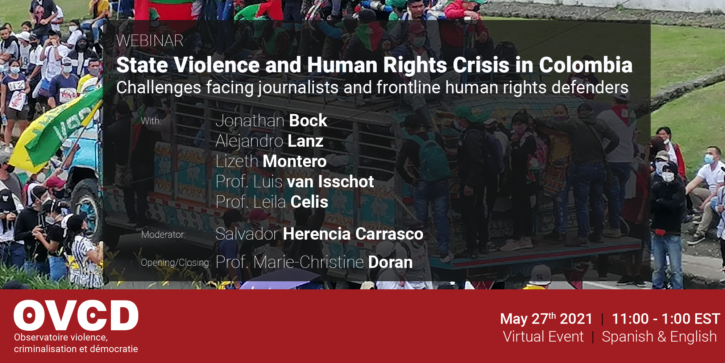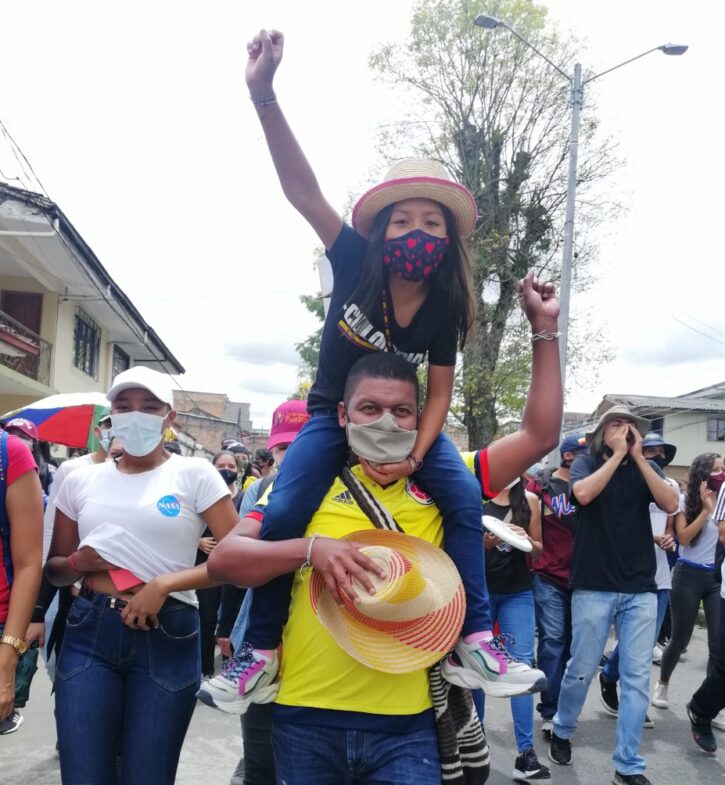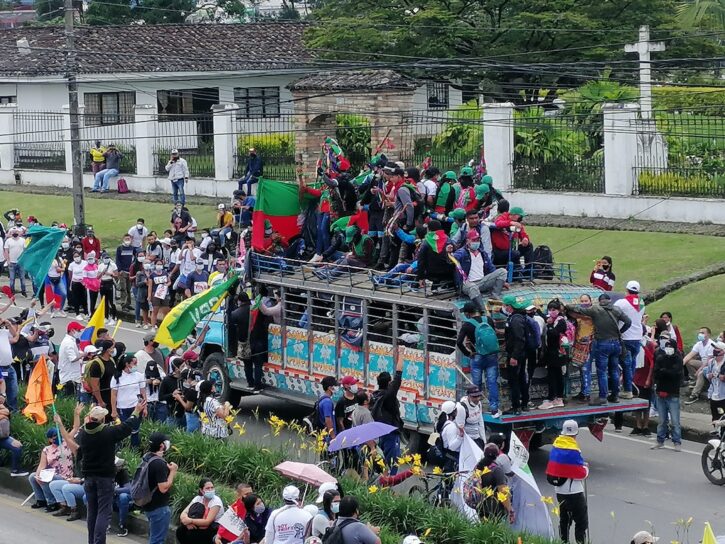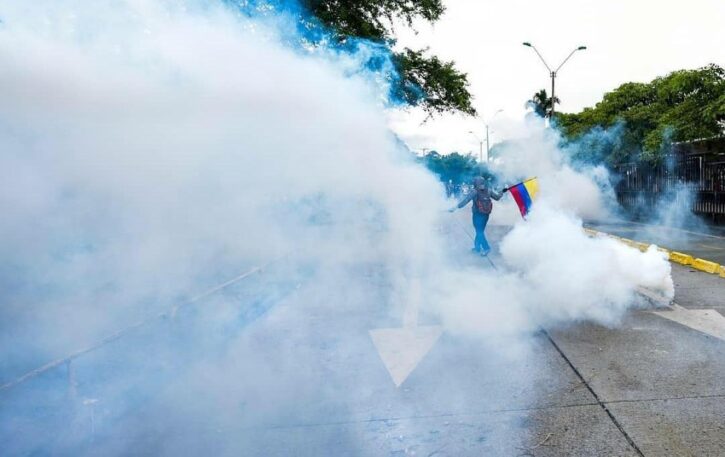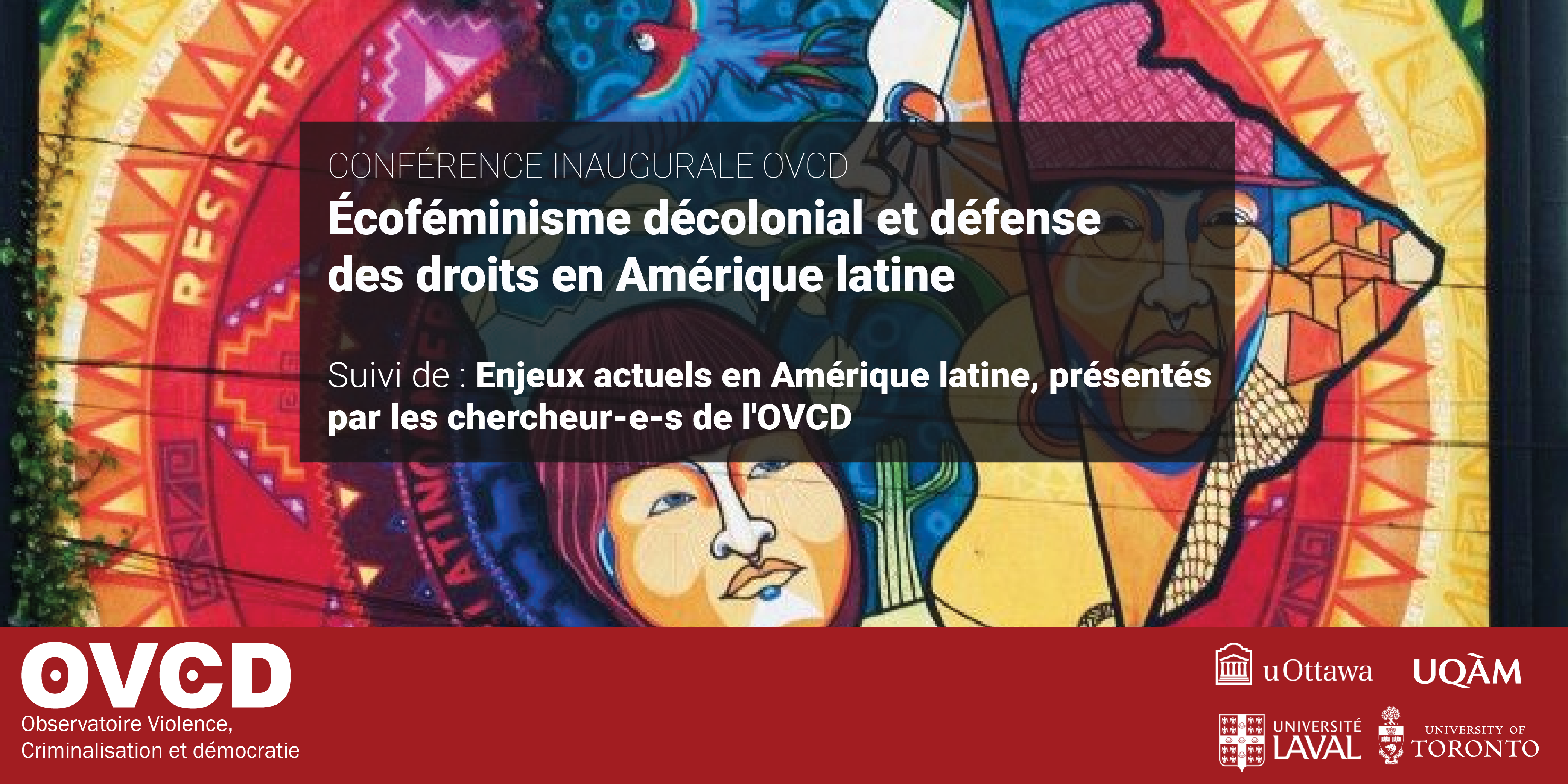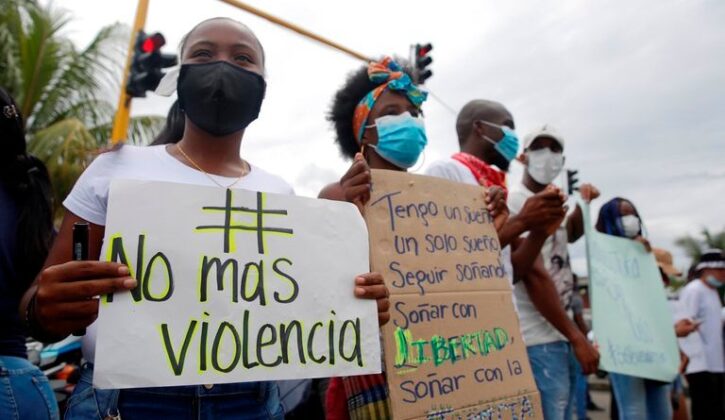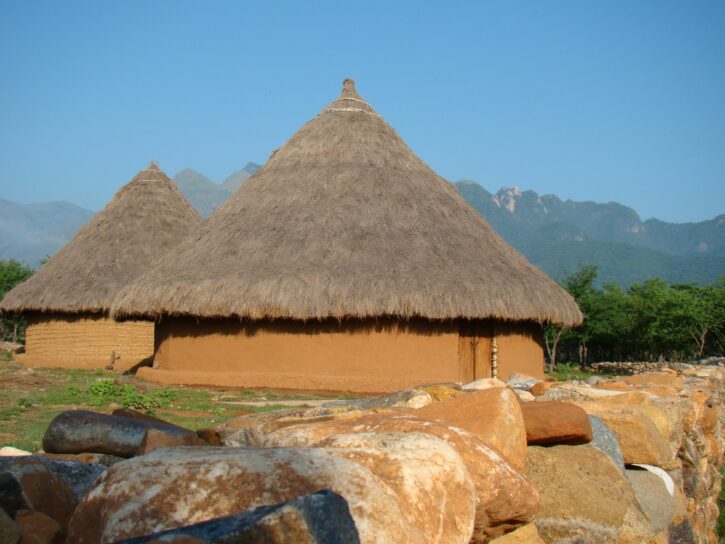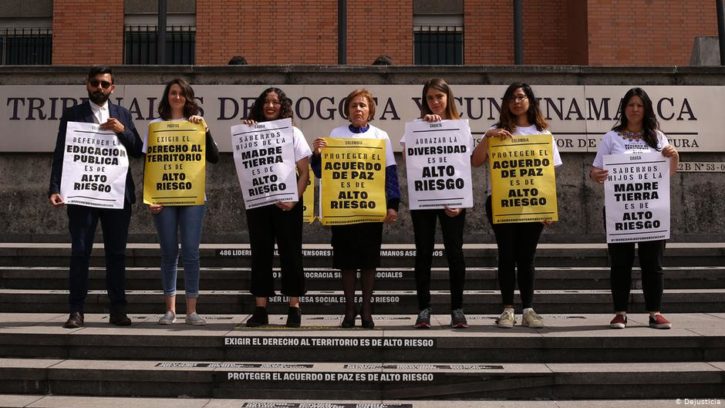Colombie
The Criminalization of Protest in Colombia: An Overview
By Luis van Isschot, University of Toronto
The criminalization of protest in Colombia refers to the use by the Colombian state of legal measures, including but not limited to the declaration of states of exception, to quell or silence legitimate, nonviolent acts of dissent. Such measures have been applied at the national, departmental and municipal levels by government and security forces officials in response to social mobilization by organized students, workers, peasants, Indigenous peoples and African Colombians. Criminalization refers also to a wider phenomenon of stigmatization of these and other popular sectors, whereby state authorities disparage individuals and organizations perceived to be their ideological enemies. As such, to best comprehend the recent history of criminalization, it is essential that we take into account the identities and demands of Colombia’s diverse social and political movements. The dynamics of criminalization are complex and varied across time, and from place to place. The pervasiveness of armed conflict and illegal economic activity has been an important factor in the way that that the criminalization of protest has been carried out and justified. In what follows, we shall look at armed conflict, social upheaval and the criminalization of protest in recent Colombian history.
The criminalization of protest in Colombia today should be understood in the context of a long history of armed conflict and state-sponsored violence that has cost hundreds of thousands of lives, and displaced millions. This situation has been significantly complicated by the presence of illegal armed groups, including rightist paramilitaries with links to state security forces and drug traffickers, as well as leftist insurgents. Through the frequent declaration of states of exception declared in the name of counternarcotics and counterinsurgency, the Colombian state has ceded considerable political power to the military. Social leaders and ordinary citizens alike have accused of collaborating with the guerrillas have been legally prosecuted by both military and civilian courts. In some cases, entire movements have been stripped of their legal right to convene, contest elections, or collectively bargain. These dynamics have continued in recent years, despite the signing of a Peace Accord between the government and Revolutionary Armed Forces of Colombia, or FARC, in 2016. A surge in popular mobilization have taken place in Colombia whereby ordinary people have sought to contribute to peacebuilding. But their efforts have entailed serious risks. As we shall see, transitional justice mechanisms introduced over the last two decades aimed at advancing the cause of justice and reparations have afforded Colombians limited protection of their basic civil and political rights, while exposing many to a violent backlash.
Ce contenu a été mis à jour le 11 septembre 2022.



